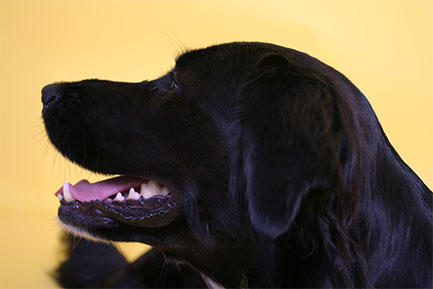Share
Related Topics
Tagged As
The American Veterinary Medical Association (AVMA) frequently reminds pet owners that accidental pet poisonings are a common problem.
We do not strictly control Google ad content. If you believe any Google ad is inappropriate, please email us directly here.
The vast majority of accidental poisonings in humans happen in the home, and that's true of pets as well. Many pet owners are surprised to learn how many common household items are hazardous to pets. The AVMA online brochure and video can help pet owners recognize threats to their companion animals.
"Every year, the ASPCA Animal Poison Control hotline handles over 150,000 cases of pets being poisoned, and many of those cases involved common household items," explains Dr. Steven Hansen of the American Society for the Prevention of Cruelty to Animals (ASPCA) in the AVMA video. "In our homes, the bathroom is the most dangerous spot for pets. The single most common reason for calls into the poison hotline is because pets have consumed medications."
Dr. Hansen explains that childproof tops on medications offer little protection against a dog determined to get into the container. Not only are prescription drugs dangerous for dogs and cats, but some over-the-counter medicines, like acetaminophen and ibuprofen, are extremely poisonous to pets. Many household poisonings happen when pet owners dose their own pets using human medications. You should never give a pet any pill without consulting with your veterinarian.
Other household poisons include:
- Houseplants are common household hazards for pets, including Cycad (Sago Palm), philodendron, dieffenbachia and lilies, which are extremely poisonous for cats. For a complete list, visit www.avma.org.
- Xylitol, a common artificial sweetener in pudding, sugarless chewing gum and baked items, is very poisonous to dogs and can result in death.
- Raisins and grapes are toxic to dogs and cats. While researchers haven't determined the cause of this toxicity, for some reason raisins seem to be far more likely to result in a serious poisoning.
- Birds are sensitive to aerosol sprays, like hair spray or fragrances, and also avocados.
- Chocolate can make a cat or dog very ill. The more concentrated the cocoa, for example in baking chocolate, the more dangerous it is for pets.
- Onions, garlic, macadamia nuts, and coffee grounds are toxic to dogs and cats.
- Cleaning products, automotive chemicals, like antifreeze, batteries, pennies, moth balls and glue all present issues for pets. Keep these products in close cabinets or high off the ground.
If you suspect that your pet has gotten into a poison, immediately call your veterinarian, your local emergency veterinary clinic or the ASPCA Animal Poison Control Center at 888-426-4435.
For more information on veterinary medicine, pet health and household hazards for you pets, please visit www.avma.org.
Contact
Tom McPheronPhone: 847-285-6781
Cell: 773-494-5419
e-mail: tmcpheron@avma.org
HHI Error Correction Policy
HHI is committed to accuracy of content and correcting information that is incomplete or inaccurate. With our broad scope of coverage of healthful indoor environments, and desire to rapidly publish info to benefit the community, mistakes are inevitable. HHI has established an error correction policy to welcome corrections or enhancements to our information. Please help us improve the quality of our content by contacting allen@healthyhouseinstitute.com with corrections or suggestions for improvement. Each contact will receive a respectful reply.
The Healthy House Institute (HHI), a for-profit educational LLC, provides the information on HealthyHouseInstitute.com as a free service to the public. The intent is to disseminate accurate, verified and science-based information on creating healthy home environments.
While an effort is made to ensure the quality of the content and credibility of sources listed on this site, HHI provides no warranty - expressed or implied - and assumes no legal liability for the accuracy, completeness, or usefulness of any information, product or process disclosed on or in conjunction with the site. The views and opinions of the authors or originators expressed herein do not necessarily state or reflect those of HHI: its principals, executives, Board members, advisors or affiliates.








